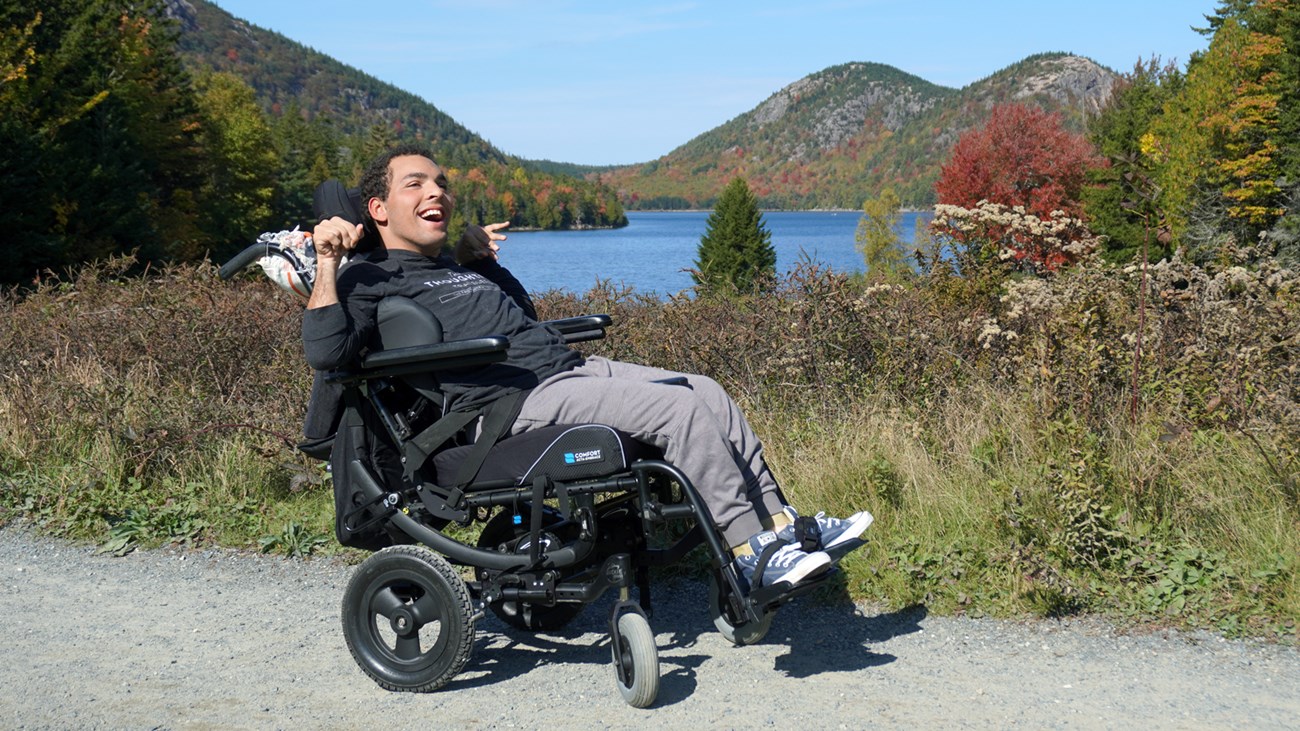
Harold Johnson, of West Hartford, CT, shares a photo from Jordan Pond in Oct 2021. "The NPS does a great job of making as many paths accessible as possible. On this day we were able to wheel all the way down to the water where we enjoyed a picnic lunch." About a Million People with Disabilities May Visit Acadia Each YearOne in four adults in the United States lives with some form of disability. That means there may be about a million people coming to Acadia each year who need some form of accommodation related to mobility, cognition, hearing, or vision impairments.
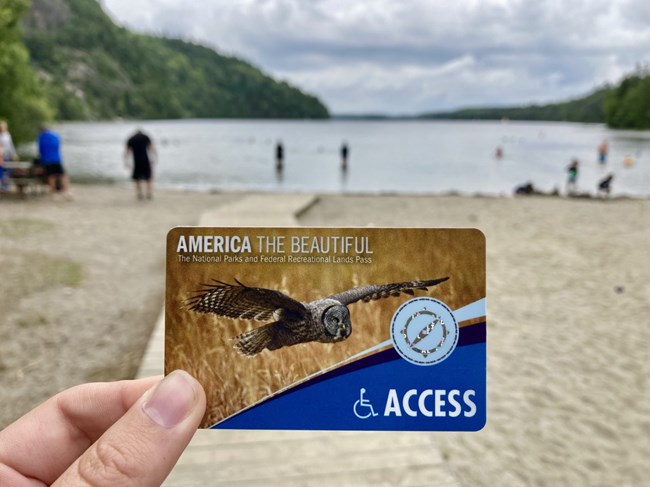
Access PassU.S. citizens or permanent residents who are permanently disabled may be eligible for the Interagency Access Pass. This free, lifetime admission pass is valid at National Park Service, Bureau of Land Management, US Fish and Wildlife Service, US Forest Service, US Army Corps of Engineers, and Bureau of Reclamation sites.
|
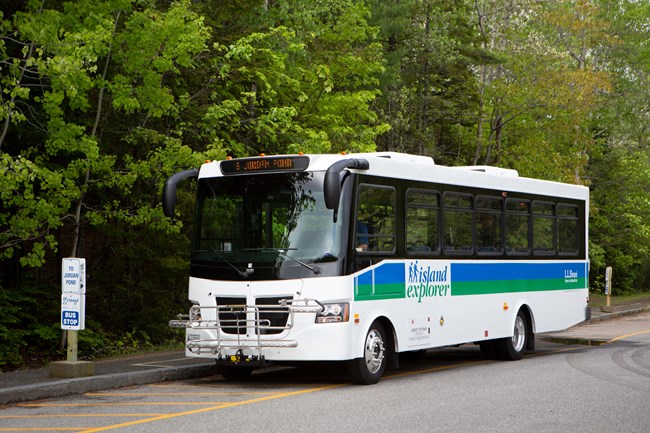
Photo by Joe Philipson, Friends of Acadia Island ExplorerFare-free Island Explorer buses are accessible for wheelchair users, but not Bicycle Express vans. Regularly scheduled buses stop at destinations throughout the park, including campgrounds, carriage road entrances, and many trailheads.
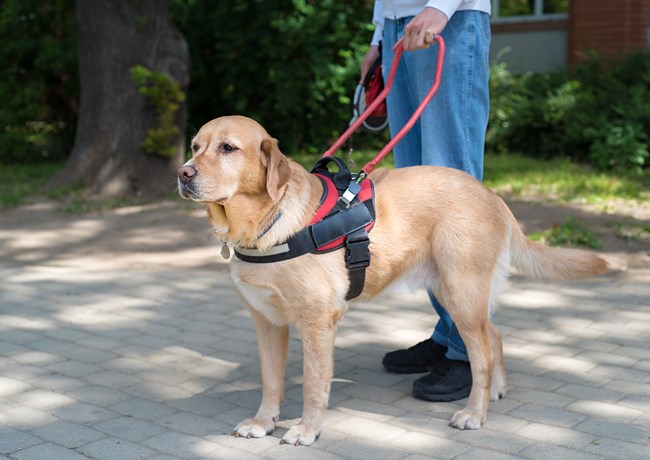
AdobeStock licensed image Service AnimalsService animals are allowed in all park facilities and on all park trails unless closed by order of the superintendent. National Park Service policy defines a service animal as a dog that has been individually trained to do work or perform tasks for the benefit of an individual with a disability, including a physical, sensory, psychiatric, intellectual, or other mental disability. The tasks performed by the animal must be directly related to the person’s disability. Emotional support, therapy, comfort or companion animals are not considered service animals.
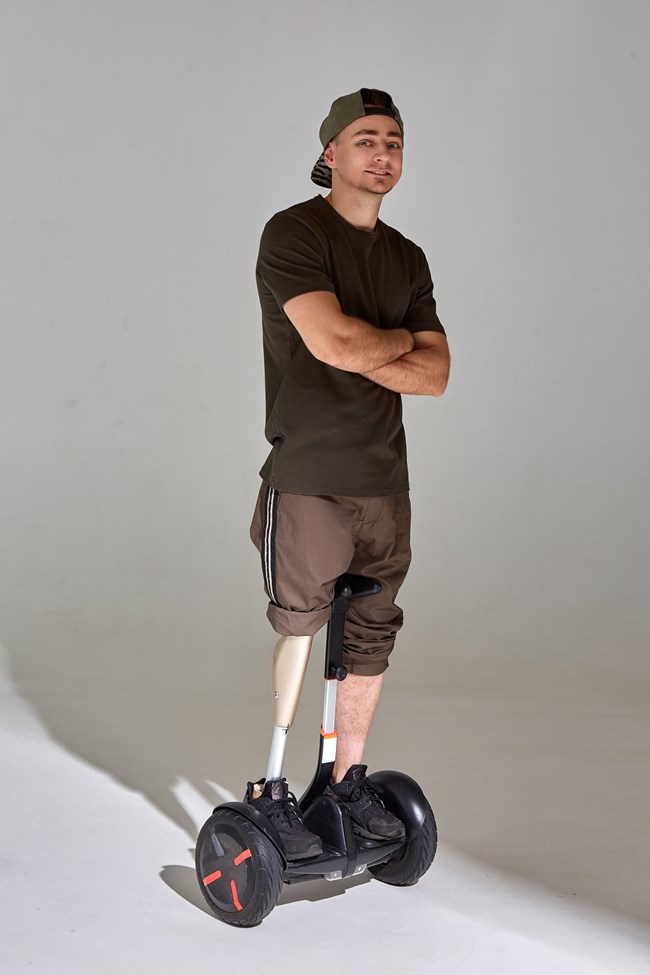
AdobeStock licensed image Other Power-Driven Mobility DevicesIn accordance with National Park Service policy, individuals with mobility challenges may request a special use permit to utilize Other Power-Driven Mobility Devices (OPDMD) in Acadia National Park. These can include e-bikes, tracked chairs, golf carts, scooters and other non-traditional wheelchairs and micro-mobility devices.
Special use permits for an OPDMD may be requested at Dispatch offices at park headquarters. Park staff issuing this permit may establish “credible assurance” in the following two ways –
For more information, please email. 
NPS Photo by Michelle Read Accessible Site DescriptionsWhile these descriptions may enhance trip planning for all visitors, they are intended to give people with disabilities more detailed information about what to expect at park destinations before they arrive. Particular emphasis is invested in providing videos, audio descriptions and transcripts for many parking areas across the park.
A sampling of available parking lot videos includes:
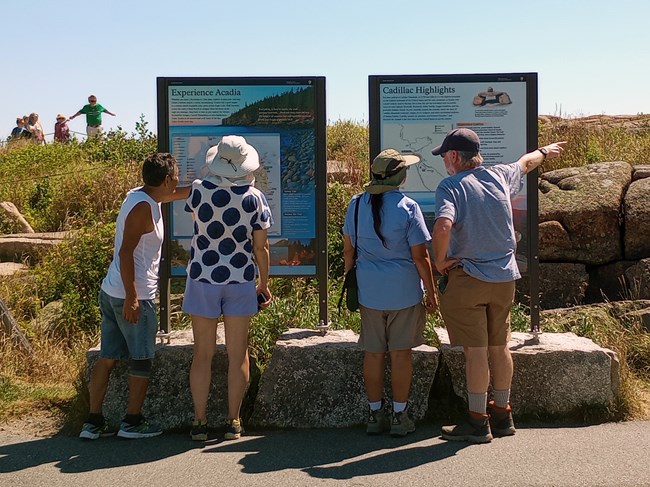
Audio Description Tour of Acadia WaysidesMost of Acadia's interpretive waysides and orientation panels are presented by geographic area in these tours and on a map in the NPS app. Recorded audio descriptions and transcripts are provided for each wayside. Links are also provided to view and download production images of each panel from NPGallery.
Visit our keyboard shortcuts docs for details
Wheelchair accessible carriage funded by the Diana Davis Spencer Foundation at Wildwood Stables in Acadia National Park on May 20, 2024. Videography by Julia Walker Thomas, Friends of Acadia. (No audio) Inclusive ExperiencesWheelchair Accessible CarriageIn 2022, the operator of the Wildwood Stables in Acadia National Park, and the park received a custom-built wheelchair accessible carriage. The carriage has a ramp on the back that should be accessible to most types of wheelchairs. Several additional passengers may join on the bench seats. The carriage was made possible through the generosity of the Diana Davis Spencer Foundation.
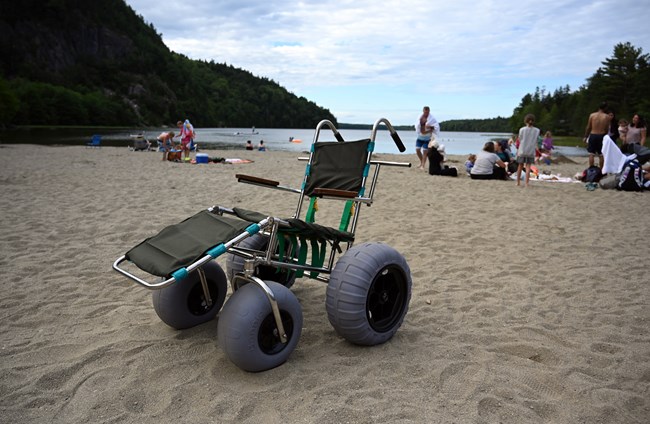
Beach Chair at Echo LakeAn accessible chair with large inflatable tires is available for public use at Echo Lake Beach during the summer visitor season. Please email us at least five days in advance to arrange for staff to meet you there.
Sign Language, Live Audio Description & Assistive ListeningAll of Acadia's scheduled public events and ranger walks, talks, and campground programs are listed on an online event calendar. To request sign language, live audio description, assistive listening devices, or other accommodation for any scheduled park event or program, please contact us at least 10 days in advance by email.
Visit our keyboard shortcuts docs for details
As part of its mandate to make park experiences more inclusive for everyone, Acadia now offers assistive listening devices for all of its scheduled ranger walks, talks, and campground programs. They're not just meant for people who are diagnosed as hard of hearing or hearing impaired. Anyone is welcome to make use of them. (Video by Jillian Trujillo, Friends of Acadia) 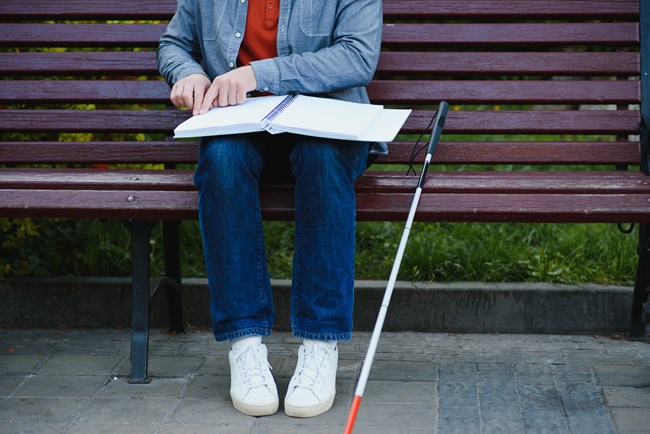
AdobeStock licensed image Braille Translations of Park PublicationsBraille translations of the park's souvenir Unigrid brochure and Essential Acadia messages are available at these locations –
Essential Acadia
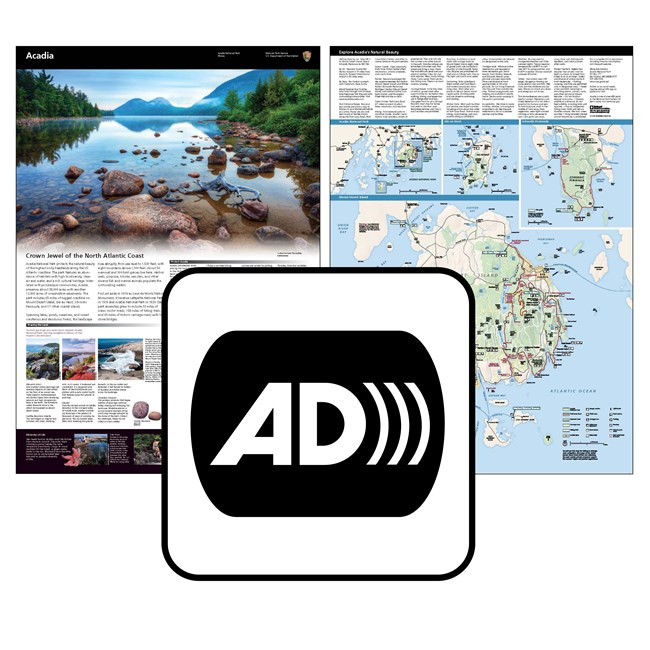
Park BrochureVisit a separate page for the Park Brochure for complete information about how you can access print, braille, audio description, and text-only versions of Acadia National Park's souvenir park brochure.
Audio described versions of the brochure can be accessed four ways –
Air Quality MonitoringAir pollution is often carried into Maine by the wind. When conditions may be harmful to people with respiratory concerns, park staff post alerts through our Current Conditions page.
Local ServicesToursTwo companies currently hold Commercial Use Authorization (CUA) permits to offer narrated interpretive bus tours in Acadia. Please contact them directly for information about the availability of accessible offerings:
LodgingPlease consult our listings of local Chambers of Commerce for accommodations with accessibile ammenities. Medical FacilitiesCall 911 for emergency medical or police assistance, or to report accidents or injuries. Mount Desert Island Hospital
|
Last updated: December 15, 2025
